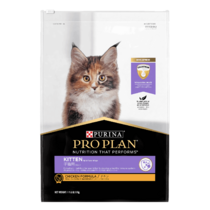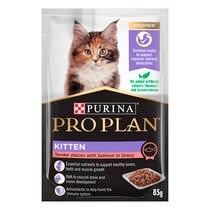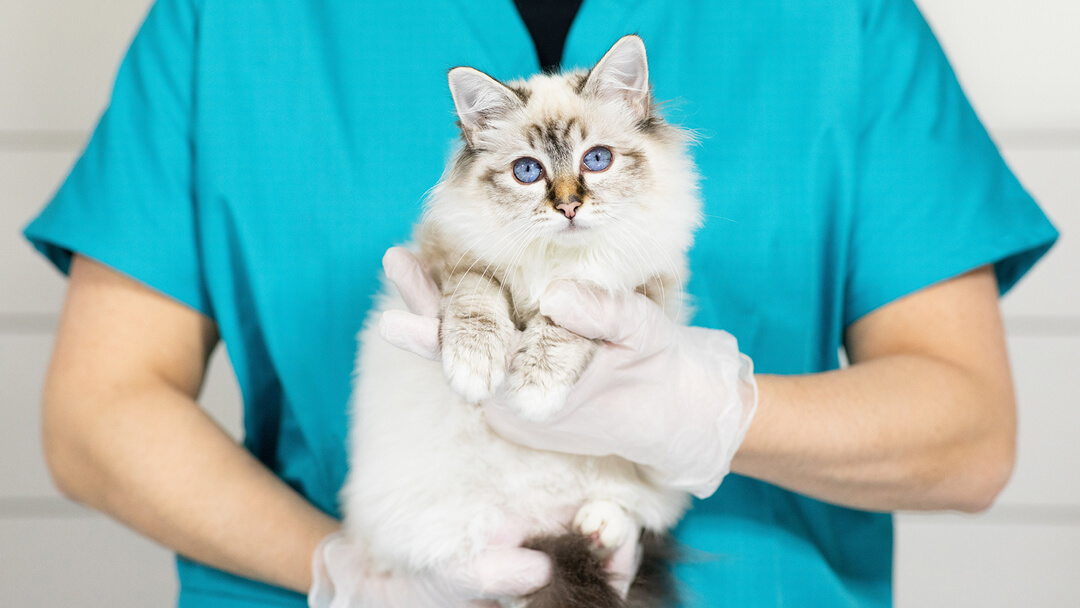

Cat insurance can bring real peace of mind and help to take the worry out of a stressful situation. Choosing the right insurance for cats might seem like a big job, but we’re here to help!
Our cats give us a huge amount of enjoyment, as well as being our steadfast companions. So, when they make us worry you want to have a good cat insurance policy in place to make sure they get all the help they need. After all, money is the last thing you want to think about if your cat is ill, lost or stolen.
You could chat to your vet about the types of insurance for cats that your pet might benefit from, and we’ve made a list of some general things to help you out too. Knowing how to choose pet insurance can be a little tricky, but once it’s done nothing beats the peace of mind you get from knowing your cat is in good hands!
The importance of cat insurance
Medical care for cats is improving all the time. However, these treatments can be costly, and when added to the stress of your cat being under the weather, they can really put the pressure on. Getting the right insurance for cats can take some of the worry away, as you’ll know you’re financially covered. Even so, it’s important to know how to choose cat insurance that will fit your pet’s needs – which means reading the small print!
What to look for in a cat or kitten insurance policy
When looking for cat or kitten insurance, it’s a good idea to do your research on the companies that are offering the policies. In the unfortunate event that you do need to make a claim, a good company could make the experience far less stressful. You should firstly search for a good track record from your cat insurance company and look into how many other people have claimed and what their experiences were like.
They should be easy to contact and offer a good, simple and straightforward service. Don’t forget to check opening times and if they have live chat, email or if all contact is via phone. Additionally, make sure that they’re happy to answer any questions and the people you talk to should be friendly and helpful. Remember that you might need to call them at a difficult time, so you need to feel like they are approachable.
Things to bear in mind for your cat insurance policy
You’ll probably end up looking at all kinds of policies – and it can be difficult to choose between them if they all start to look the same! To help you out, here are the main things you might want to consider when choosing insurance for cats.
The cost of your policy
While you want the best policy you can get when it comes to your feline friend, you must be able to afford the cat insurance cost. If the monthly premium is too high for your finances, you’ll just be giving yourself extra stress.
How much excess will you have to pay for each claim?
The excess is the amount of money you have to pay before the cat insurance company covers the remainder. If the excess is high, you’re less likely to claim for minor conditions – and this should be reflected in a lower monthly cost. Only you can weigh up the pros and cons, but make sure you think it’s fair.
Does the cat insurance cover all the costs of your pet’s treatment?
It’s also important to find out what areas of treatment will be included within the policy.
For example: consultation fees, your cat staying in hospital, their medicine, anaesthetic, operations, x-rays and ultrasounds and laboratory fees. At a referral level, this would be if your vet sends your cat to a specialist.
You might also want to find out if the treatment of behavioural disorders and complementary treatments such as acupuncture are covered. Choose whatever’s right for you and your cat, but make sure you’re happy with what’s covered.
You might also ask if your cover will include the cost, or a contribution towards, special veterinary recommended diets.
Does your cat’s age affect the cost of your cat insurance policy?
Some companies won’t offer policies for older cats, as there is more of a likelihood that they will need expensive treatments, and some will ask you to pay a proportion of their treatment if your cat is a certain age or above.
What’s the maximum amount you can claim for each condition in a year?
Hopefully it won’t happen, but your cat might need treatment at a specialist centre – and the bills can add up. For example, ?1,000 might sound like a lot of money as the maximum amount your cat or kitten insurance company pays for something, but a bill for a broken bone could be double that amount or more! Think about the bills you’d expect should something go wrong, and decide accordingly.
Some companies will offer ‘lifetime’ cover which will protect your cat for their entire lifetime, providing the policy gets renewed each year. You’ll have a yearly allowance which will either be a set limit to cover all issues or per condition, and upon renewal this will refresh and you’ll get your allowance topped back up.
Is the cost of your insurance affected by your postcode or your cat’s breed?
It’s worth keeping in mind that the type of breed and even your postcode can change the cat insurance cost. For example, more urban areas might attract a higher premium, as do breeds of cat that are known to suffer from more problems. If you have a pedigree cat, check that congenital and hereditary conditions are definitely covered too, some policies won’t let you claim for known hereditary conditions.
Does your cover include third-party costs in case your cat causes an accident?
Cats don’t mean to cause trouble, but sometimes mishaps do happen! Check what will happen if your cat causes an accident – and have a look at your house and contents insurance, as some of these policies also cover legal liability for damage or injury caused by pets.
Are there multi-pet discounts?
Many companies offer a discount if you have multiple pets within your home, which is good news for pet lovers. Have a look to see what’s available.
What does the cat insurance policy offer you?
Will your insurance company pay if your cat gets lost or is stolen?
Some companies offer a lump sum if your cat strays, gets lost, or is taken. Also check to see if your policy contributes to the cost of making missing notices and offering a reward.
Will the company give you a lump sum if your cat has to be put to sleep?
Nobody wants it to happen, but sometimes we have to say goodbye to our pets. Some policies might offer a lump sum if you have to do this, which is important for pedigree cats and kittens that can cost several hundred pounds.
What other restrictions does the policy have?
Take a look at the conditions of your policy to ensure you don’t accidentally lose your cover. For example, some policies won’t cover dental treatment unless your cat’s teeth are checked by the vet once a year.
Most policies require complete, up-to-date cat vaccinations. Check the small print of your insurance for cats so you can stick to the restrictions and keep your cat fully covered.
Although there’s a lot to choose from, with these questions in mind you should be well on your way to finding the policy that’s right for you and your cat. After that, you can enjoy your pet’s company worry-free and prepared for anything the world throws at you.















